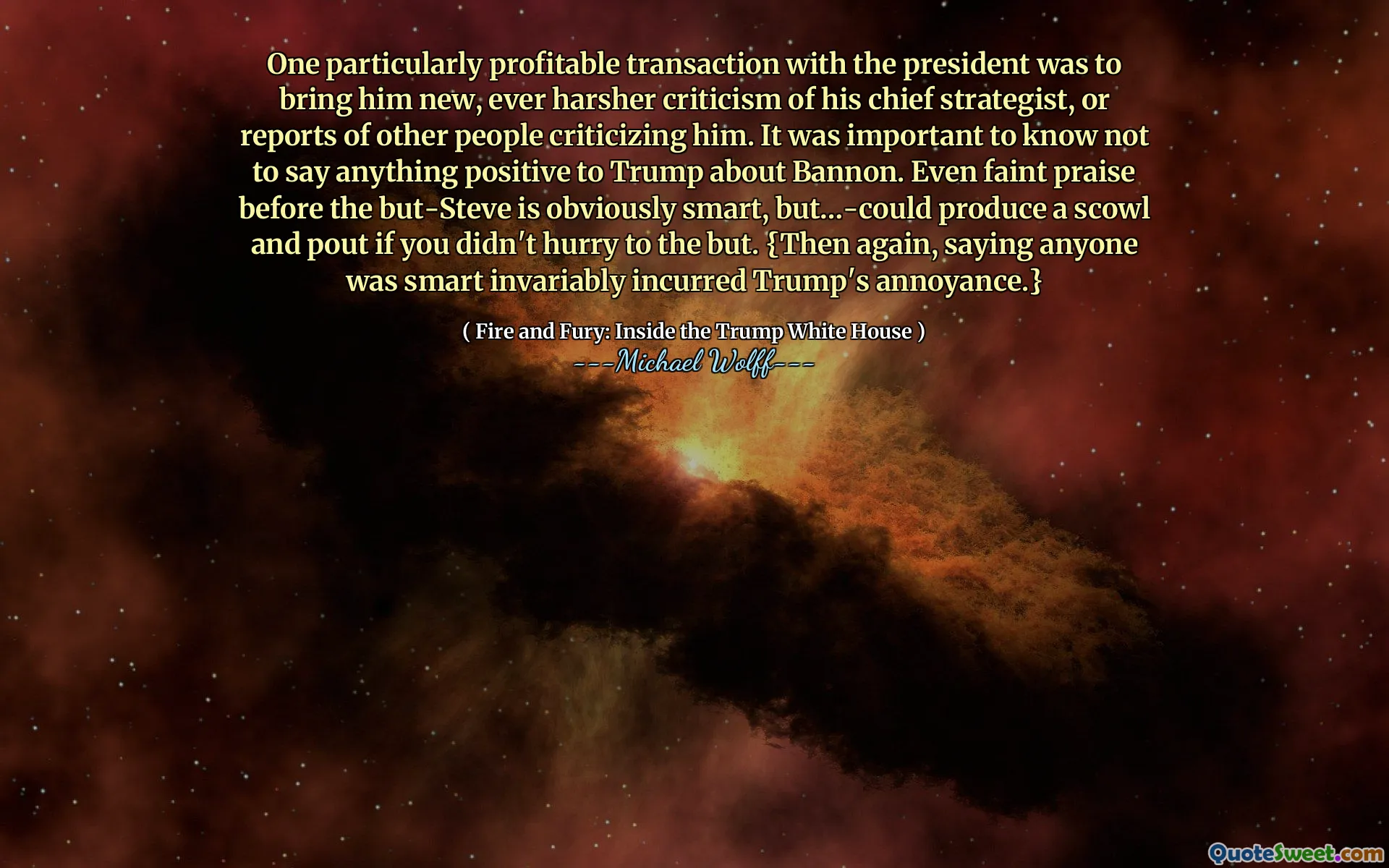
One particularly profitable transaction with the president was to bring him new, ever harsher criticism of his chief strategist, or reports of other people criticizing him. It was important to know not to say anything positive to Trump about Bannon. Even faint praise before the but-Steve is obviously smart, but…-could produce a scowl and pout if you didn't hurry to the but. {Then again, saying anyone was smart invariably incurred Trump's annoyance.}
In the book "Fire and Fury: Inside the Trump White House," author Michael Wolff highlights a fascinating dynamic in President Trump's interactions with his team, particularly with his chief strategist, Steve Bannon. The author reveals that it was often more profitable to exacerbate criticism of Bannon when communicating with Trump. Reports that emphasized Bannon's faults or attracted scrutiny were more welcome than any suggestions of his strengths. Thus, those around Trump learned to navigate this delicate balance carefully.
The strategy of focusing solely on negative aspects of Bannon was crucial, as even mild praise could elicit visible dissatisfaction from Trump. The author noted that even a statement like "Steve is obviously smart, but..." would provoke a negative reaction unless followed quickly by criticism. Trump's annoyance was especially pronounced when anyone was described positively, underscoring his complex relationship with praise and critique within his inner circle.











